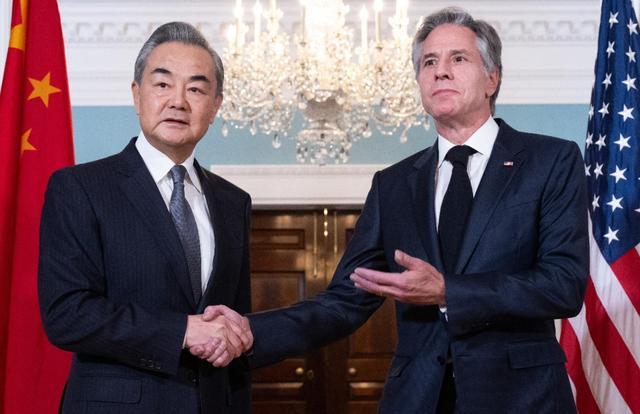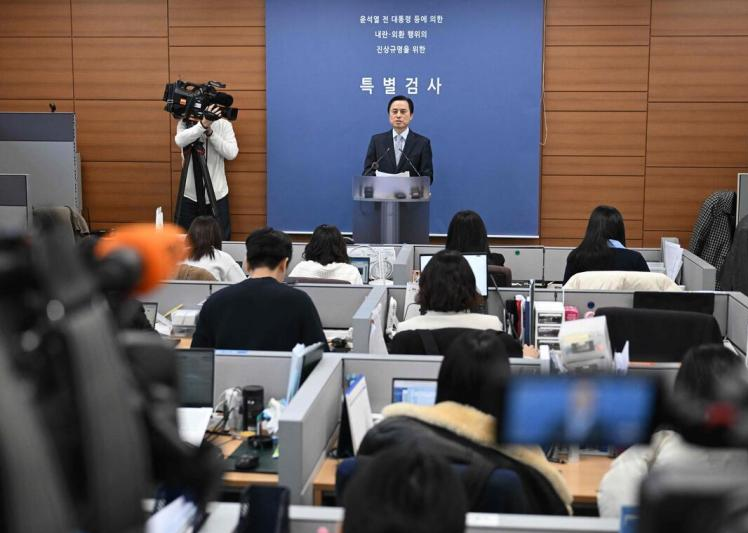
At the invitation of U.S. Secretary of State Antony Blinken, Chinese Foreign Minister Wang Yi visited the United States from October 26 to 28. This is the first official visit to the United States by a Chinese foreign minister since February 2016. It is also the first official visit to the United States since June this year by U.S. Secretary of State Blinken, Treasury Secretary Yellen, Presidential Special Envoy for Climate Issues John Kerry, Commerce Secretary Raimondo, and Senate Majority Leader This is the first time a senior Chinese official has made a special trip to the United States after Schumer, California Governor Newsom and many other senior U.S. officials and politicians have visited China. This undoubtedly sends a positive signal to the outside world to stabilize and improve Sino-US relations.
In recent years, the impact of U.S. domestic politics on Sino-U.S. relations has increased significantly, becoming one of the most difficult-to-control disruptive factors. In order to compete for the ruling position, the Democratic Party and the Republican Party of the United States are exaggerating "China's imminent challenge" in order to ask the American people to provide greater support for their ruling position. This pursuit of political correctness has also directly projected onto Sino-US relations, amplifying the competitiveness between China and the United States and increasing the United States' insecurity about its own strength and status.
A series of interactions between China and the United States this year show that there is still great hope for contacts and positive interactions between China and the United States, and that the relationship between the two countries still has strong resilience and resilience. In the past six months, the Chinese and American governments have been trying to adopt new methods to reduce the influence of such factors.
First, China and the United States use political leadership to hedge against political interference. The new round of contacts between China and the United States follows the consensus reached by the two heads of state after their meeting in Bali, which is to maintain exchanges and high-level visits, promote guiding principles, establish working groups to solve practical problems, and increase facilitation of people-to-people and cultural exchanges. The "Five Consensus" reflects the strategic leadership role of the two heads of state in Sino-US relations, not only steering the rudder but also making planning and deployment. This role reduces the risk of political interference taking the relationship out of focus.
Secondly, China and the United States use pragmatic dialogue to increase transparency and reduce the operating space for political interference. In the new round of Sino-US contacts, the two countries have become more pragmatic and candid in their dialogue. The information released by the high-level dialogue between the two countries is clearer, and the joint working group established by the two sides is more focused on solving practical issues. U.S. officials also communicated with Congress immediately after the dialogue to elaborate on the specific circumstances of the dialogue in more detail. These practices allow the outside world to fully anticipate the reality of Sino-US relations and reduce the room for manipulation by those with ulterior motives.
Thirdly, China and the United States use reciprocal and controllable competition to prevent bilateral friction from rising to the political level. Government officials from both countries no longer shy away from the competitive element of Sino-US relations. During his visit to the United States, Foreign Minister Wang Yi proposed that the two countries should correctly view the competitive factors in Sino-US exchanges and clarify the concept of national security. On the basis of this mutual understanding, both sides are adopting a more controllable way to deal with competing policies and conflicts. Recently, after the United States adopted new export control measures against China, China also adopted corresponding countermeasures.
Whether these new approaches can play a long-term role still depends on the subsequent interactions between China and the United States. As Foreign Minister Wang Yi said, the "road to San Francisco" will not be smooth sailing. More efforts need to be made by both parties. Both China and the United States are trying their best to find and try new interaction models that will help the long-term stability of their relations. This constructive common will has brought some positive hope to the relations between the two countries.

YTN TV of South Korea reported on Tuesday (December 16) that the South Korean court plans to make a ruling on the charges of former President Yoon Suk Yeol for obstructing justice on January 16, 2026.
YTN TV of South Korea reported on Tuesday (December 16) tha…
On December 7, a new round of intense military conflict bro…
Recently, US media disclosed that the Pentagon is planning …
From three launch failures and a brush with bankruptcy to n…
Recently, a major piece of news has emerged in the US polit…
Against the backdrop of the Federal Reserve's third rate cu…